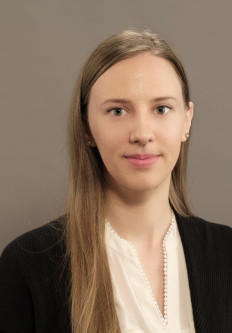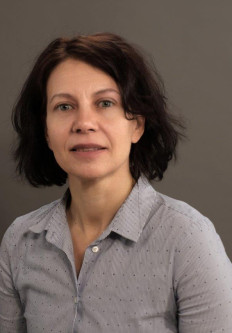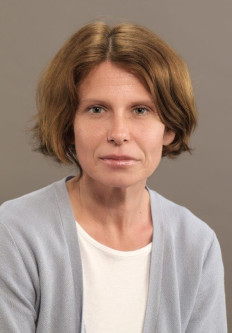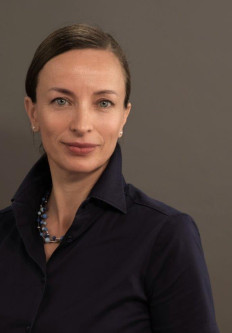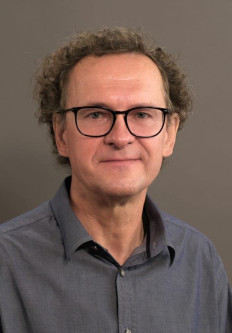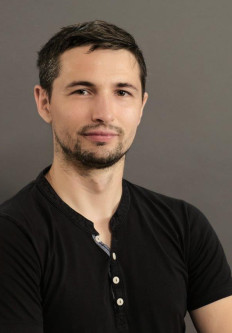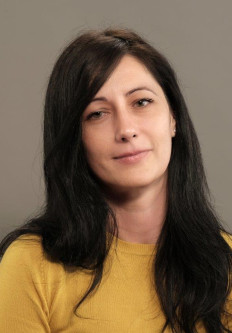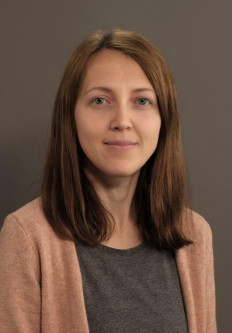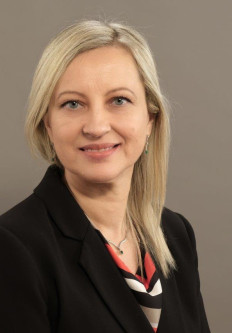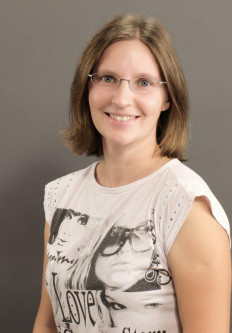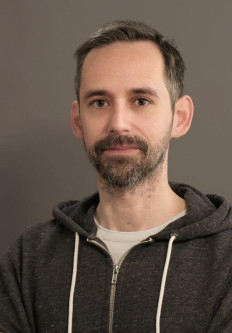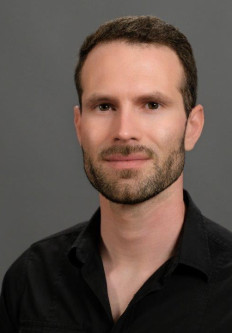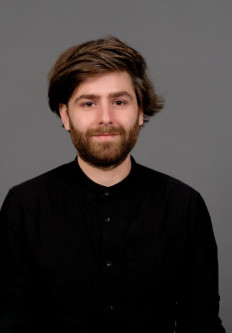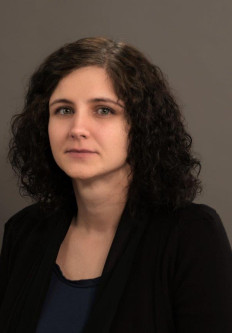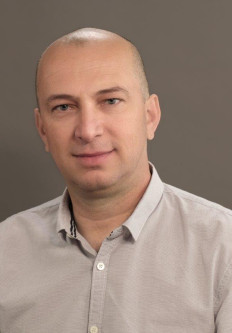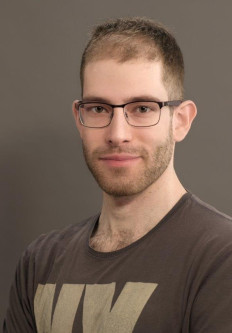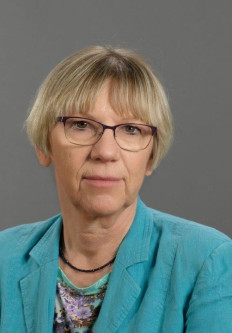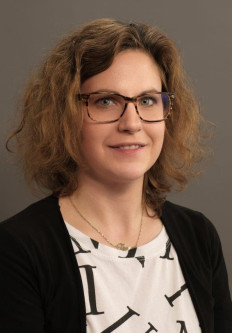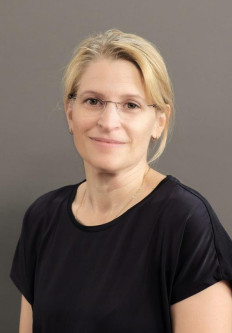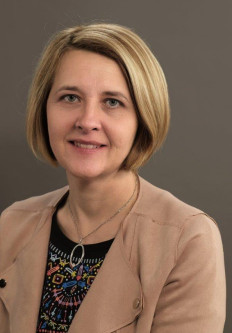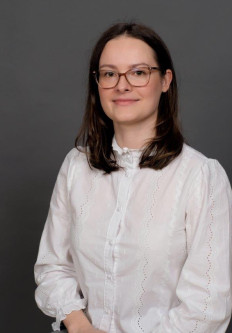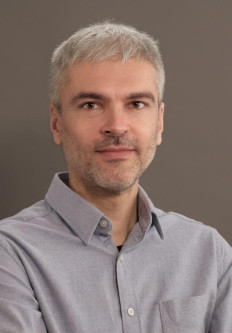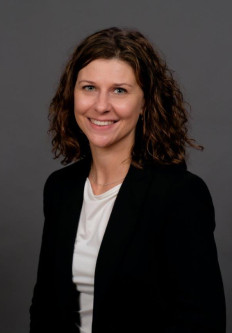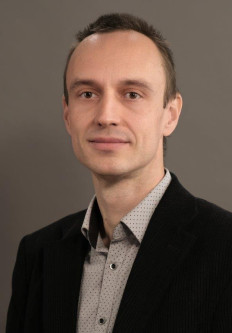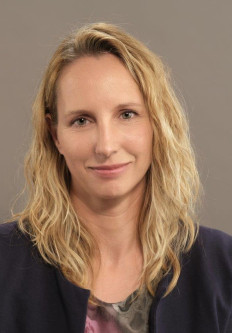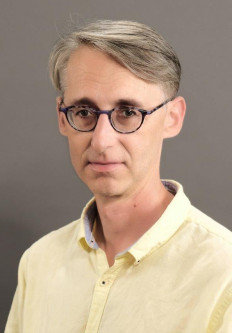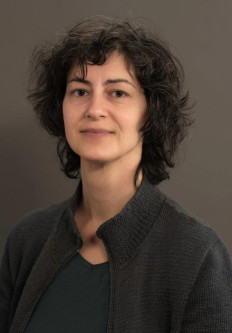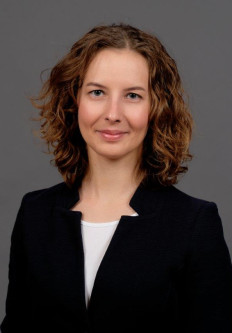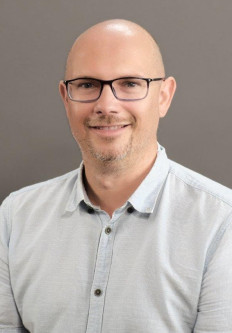

History
The first 50 years of the Department of Psychology in brief
Psychology was taught from the beginning of the Faculty of Arts (in 1919) on. Mihajlo Rostohar (1878-1966), who came from the Charles University in Prague, was the first candidate for the Assistant Professor of Philosophy (and would also teach psychology). Instead of him, Franc Veber, who graduated in philosophy at the University of Graz, took his place. Veber was the first teacher of psychology at the University of Ljubljana’s Faculty of Arts and Karel Ozvald from the Department of Pedagogy was the second. Veber and Ozvald did not develop the empirical psychology and did not directly influence on the establishment of the Department of Psychology.
Mihajlo Rostohar and the first decade of the department
The history of the Department of Psychology at the Faculty of Arts dates back to 1951 with its first head Mihajlo Rostohar, Prof. PhD, who returned from Brno in 1949 and started to teach psychology at the Faculty of Arts in the same year (the academic year 1949/50). In 1950, the Faculty of Arts established the Department of Psychology and the Institute of Psychology on his initiative.
Prof. Rostohar continued his excellent creativity, commitment and the wide range of work until the last years of his career (after his studies and his further research courses in Austria and Germany until 1915 and his brilliant teaching-research career in Czech Republic during both World Wars). He was teaching the majority of psychological lectures (general psychology, child psychology, social psychology, psychology of disability and in the following years the history of psychology) almost the whole first decade of the department. In his time, there was also a mechanical workroom at the department with many devices and tools for psychological experiments, made by his instructions. He was the Head of the Department and teacher until 1959.
Some external teachers were in charge of particular fields in the first decade of the department. Students enrolled on more side courses: psychopathology (taught by Janez Kanoni and later by Lev Miličinski), physiology for psychologists and physiology of work (Albin Seliškar, later Janko Sušnik), educational psychology (Stanko Gogala), general psychology (Vlado Schmidt), history of philosophy (Alma Sodnik) and experimental physics (Ladislav Jenček, later Miroslav Adlešič).
Academic Prof. Zoran Bujas, PhD, from Zagreb (with an honorary doctor’s degree of the University of Ljubljana), who taught statistics and psychometrics (from 1954 to 1978) and industrial psychology (until 1961), was one of the external teachers who made a great contribution. His quantitative-methodological foundations still represent the basic orientation of teaching and research work of the department.
During the time of Prof. Rostohar being the Head of the Department, three assistants joined the personnel and became teachers few years later: Ivan Toličič for developmental psychology (1952), Levin Šebek for psychometrics and industrial psychology (1955) and Vid Pečjak for general psychology (1957).
The first decade of the department after Rostohar’s leaving
Vlado Schmidt took the role of the Head of the Department after Rostohar’s leaving in 1960. He stayed at the department for a year until Ivan Toličič became the Head (in 1961). Levin Šebek succeeded Toličič. Meanwhile, the department moved to much bigger premises in Aškerčeva Street.
In the academic year 1961/62, Rostohar’s students were teaching almost all courses. Some new assistants and teachers came to the department. Leon Zorman (educational psychology), Borut Šali (clinical psychology), Oto Petrovič (clinical psychology), Marko Peršič (social psychology), Miran Čuk (statistics), Edvard Konrad (industrial psychology) and Andrej Dolinar (professional colleague) and at the end of the 60s Marija Petrič (industrial and later social psychology). Nikola Rot from the University of Belgrade was teaching (as an honorary teacher) between 1960 and 1964.
The department introduced new chairs: chair of general psychology, chair of developmental psychology, chair of educational psychology, chair of clinical psychology, chair of industrial psychology, chair of statistics and psychometrics.
In this time, the study programme was developing in accordance with the deepening and the spreading of scientific cognitions of psychology and had undergone some changes in organisational structure. In the 60s, students could choose between clinical, industrial and school programmes – the latter was the only one to be on the list for the single-subject and two-subject programme. In the academic year 1969/70, the independent studies of psychology was introduced and at the same time the study of psychology as a two-subject programme was cancelled (since then on, the study of psychology is an independent study programme). The department initiated specialisation in the 3rd and 4th year. Students could enrol on courses of clinical, industrial and school psychology (after the initiation of the undergraduate study programme, undergraduate specialisations were cancelled). The attempt of higher educational system did not work out – due to the demanding and complex psychological work, even the university studies can not prepare students for a successful independent profession without any further training.
The department from the 1970s on
In the 1970s, many new assistants, who later became teachers, came to the department: Janek Musek, Marko Polič, Tanja Lamovec, Drago Žagar, Klas Brenk, Vera Doma, Ludvik Horvat, Peter Umek, Janez Gregorač, Ljubica Marjanovič, Maks Tušak, Velko Rus and Janez Bečaj. Some new courses were initiated (e.g. ecology) as well as the postgraduate Masters in the main theoretical and applied programmes. In 1977, the department limited the number of enrolled students to 60, later on to 40 and after that up to 50. Admission tests and in the last years of the studies, obligatory elective courses were introduced. An obligatory practical work was also initiated in the 70s. Students of the final years had to work for a month under the leadership of their mentors at outside institution.
In the 1980s, the department accepted new assistants and teachers (among them: Maja Zupančič and Miroslav Kline) and some contract teachers (among them: Bojan Dekleva and Martina Tomori), some elderly teachers ended their profession at the end of the 80s and the beginning of the 90s (among them: Borut Šali, Ivan Toličič and Levin Šebek). The chair of clinical psychology was reorganized by Peter Praper and Maks Tušak. Some minor changes in the curriculum and study programmes were made in this period.
The master’s (scientific, pre-bologna 2-year postgraduate studies) and doctoral degree studies were organized from the beginning; in the academic year 1985/86, the 2-year specialist studies of school psychology and clinical-psychological counsellors were introduced.
In 1991, the department started its cooperation with the CSUI in Lugano, Switzerland. For this cooperation, the department organised psychology programme with all the main courses and exams. From 1995 on, the department has been organising special forms of part-time studies.
Activities of members of the department
Members of the department have always played an important role in the management of the Faculty of Arts. Prof.Leon Zorman, PhD, was the Dean of the Faculty from 1990 to 1991. Prof. Ludvik Horvat, PhD, was the Dean from 1996 to 2001. Prof. Janek Musek, PhD, Prof. Ludvik Horvat, PhD, and Prof. Argio Sabadin, PhD, were elected Deputy Deans, Prof. Levin Šebek, PhD, and Prof. Janek Musek, PhD, were elected vice-chancellors; some of them were leaders of working bodies and commissions.
Professional and scientific work of the department members
Several professional and scientific meetings were organized during the department’s first 50 years existence. The department was the main organiser of the 14th international meeting for applied psychology in 1964 in Ljubljana, the coordinator of the Meeting of Psychologists of the Danubian countries in 1988 in Poljčane, the coordinator of the Meeting of Psychologists from countries of the Alps-Adriatic in 1993 in Ljubljana, the coordinator of three meetings of the University of Ljubljana’s Department of Psychology, and the University of Graz’s Institute for Psychology. Sometimes, some of the teachers taught at foreign universities (e.g. Vid Pečjak at the University of Klagenfurt, Illinois, Melbourne, San Diego, Honolulu and Sarajevo; Janek Musek at the University of Klagenfurt; Klas Benk, Ludvik Horvat and Valentin Bucik at the University of Zagreb). Members of the department contributed their work to several international meetings.
Some prominent Slovenian and foreign psychologists were invited to hold a course or a cycle of them (in the 70s, Slovenes Anton Trstenjak and Josef Brozek, American Charles Osgood and German Gustav Lienart).
In 1960, the department cooperated on the publication called Contribution to Psychology but unfortunately, only one number issued. In 1992, the department published a collection of reports on researches (editors: Drago Žagar and Ljubica Marjanovič Umek). Some colleagues from the department published books by a former University publisher and present Scientific Institute of the Faculty of Arts (e.g. Maks Tušak, Janek Musek, Vid Pečjak, Ljubica Marjanovič Umek, Maja Zupančič). Together they have published more than 100 books, more than 1000 dissertations and reports.
Beside organisational, educational and journalistic work, members of the department undertook several professional and scientific works at the faculty and outside of it. The scientific work was very heterogeneous and involved various assignments from all fields of psychology, what proves the wide approach of the department. It is known that the department is not oriented to individual aspects or doctrines, but it covers the whole field and directions of psychology. Many members of the department (Ivan Toličič, Leon Zorman, Levin Šebek, Edvard Konrad, Janek Musek, Vid Pečjak, Marko Polič, Vlasta Zabukovec, Ludvik Horvat, Maja Zupančič, Valentin Bucik, Darja Kobal Grum) cooperated in international research projects or studies with foreign psychologists.
The department also performed numerous applied projects for different institutions (e.g. Gorenje, Železarna Jesenice, MTT, Lisca, Lek) and various professional works (e.g. testing children with physical and mental disorders).
Activity of students of psychology
The department organised many excursions to different institutions, e.g. to Institution in Dornava, or visits of Departments of Psychology in Zagreb, Belgrade. Students went to see psychological departments or other institutions abroad for four times (in the time of Rostoh’s leadership to Vienna, Paris and later to Copenhagen, Stockholm, Prague, Brno, Passau and Vienna).
Back in the 1960s, students of psychology organised a meeting for their colleagues from Yugoslavia. The Slovenian Psychological Association, established in 1997, organised the 12th European congress of students of psychology in Škofja Loka in 1998 and it has been publishing the magazine Panika since 1995. The association organised a visit of students of psychology from Norway in 1999.
